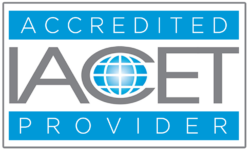Question: What are eight of the worst words a parent will ever hear?
Answer: “I am sorry; your child will not graduate.”
As the school year draws to a close, it is time to think about the importance of contacting parents. News like “I am sorry, your child will not graduate” should never come as a surprise. Long before such a difficult moment, and at the first sign of trouble, there should be frequent and ongoing communication.
Merriam-Webster says you “communicate” when you “give information about (something) to someone by speaking, writing, moving your hands, etc.” These multiple approaches—“speaking, writing, moving your hands, etc.”—suggest a theme: make sure you use all methods. Today we may text, email, and post more often than we talk face-to-face.

So in light of this definition, how well do educators communicate?
From my perspective, there is room for improvement. Whether the information is positive or negative, the question becomes, How can we make sure educators are exploring all methods to minimize unacceptable surprises and help promote student success?
Here are three ideas I would offer.
First, be as open as possible to receive communication from parents. Yes, we need to initiate much of the dialogue, but when we are contacted, we need to respond. In most cases, that response should come the same day or within twenty-four hours.
In addition, that response should probably employ the same modality the parent used—that is, if we receive an email, we should reply with an email. The reason for this is simple consideration. Why not respect what the parent chooses?
When I was a superintendent, I published my email address, home phone, direct office phone, and cell phone numbers. I invited parent communication.
Was I overwhelmed? Surprisingly, no.
What did my openness accomplish? I believe it prevented critics from saying they could not get ahold of me. You see this cited frequently in the media—for example, that so-and-so “could not be reached for a comment.” Parents say the same thing if they have difficulty reaching us.
Second, engage in systematic communication with the parents who are likely to need it most. These fall into two categories. One set has quiet, well-behaved children—students who rarely act out of a “normal” set of boundaries. Thus, the parents seldom get a call from school, and they have to assume “no news is good news.”
These parents are often blown away to be called when there is nothing wrong. The depth of the resulting conversations can provide a foundation for the future.
The other set of parents are the ones whose children are at risk of failing. They need to hear from us before it is too late. These difficult calls may be the only hope of turning a situation around. It takes a team approach, and when situations improve, they are among the most joyous for all concerned: student, teacher, and parent. The team setting provides an opportunity to craft creative and life-altering improvements that everyone owns and supports.
And it all starts with that first call—the sooner, the better.
Third, avoid excuses. We tend to put off what we don’t enjoy. Income tax? Wait until April 15. Go to the doctor? Wait another month.
Sadly, it can be the same with calling a student’s home.
Instead of finding a reason not to call, make the call as soon as possible. Frequent communication on a timely basis has real impact. In contrast, communication made two days late is counterproductive. Parents know a stall when they see it; therefore, avoid it at all costs.
Our work in education is challenging, and frequent communication with parents is needed now more than ever. A well-timed call, text, or email can go a long way toward student success. Since this is our goal for every student, let’s make a strong push for effective and consistent communication. It’s the road to saying, “Congratulations! Your child is graduating today with honors!”—eight of the best words a parent will ever hear.

